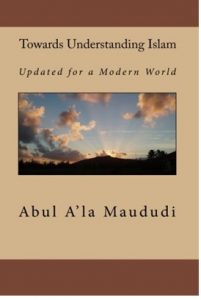Letters to the Editor
Q. It is necessary for a Muslim to obey the commands of the Prophet (saws). But is it also necessary to agree to whatever opinion on any subject expressed by the Prophet (saws)? To what extent is it allowable to differ in opinion with him?
Aslam Ahmed,
KDH – Delhi.
YMD
Broadly speaking, there are two kinds of Prophetic statements: one pertaining to religion, the other to worldly affairs. Now when it comes to the former – religious matters – there can be no two opinions about it. His opinion is final. But, as regards the second kind, his followers are free to take or leave.
his followers are free to take or leave.
For instance, he recommended that we drink cow’s milk because he noticed that it eats from every kind of grass and green leaves. He concluded, perhaps, although he didn’t say so, that an animal that ate from a variety of pasture, would yield a richer milk than another that didn’t. Now, his followers are free to drink cow’s milk or any other of their choice. There is no sin upon them if they chose not to drink cow’s milk – especially today when it is fed only one kind of feed. If they drank, then there are two situations: either they drank it simply because he recommended, or because of other reasons. If they drink simply for the reason that he has recommended, they would be rewarded for the intention but not for the act. That is because drinking cow milk is not a virtuous act. If they drank for other reasons, then neither they will be rewarded nor punished.
Of course, there are several acts that seem to fall in between: the religious and the worldly. Sometimes a part of an act is religious, while a part is not. In such cases, the person involved should himself asses to the religiosity or otherwise of the deed.
Now, taking up the religious part of the Prophetic statements or his examples in deeds, we have said above that there can be no two opinions over them. He is always right, without the least possibility of another opinion opposed to it being correct. Whoever held an opinion other than the Prophet’s in religious matters is wrong, and, if he expressed it, will be questioned about it on the Day of Judgement. One might, however, note carefully that it is the opinion that we are talking about.
As regards actions in accordance with the Prophetic statements of the religious kind or deeds (the Sunnah) in accordance with his, the following is a further explanation. Religious acts are divided into several kinds. A rough division would render them as: the obligatory and the non-obligatory ones. The Sunnah also gets divided into these two kinds: those that necessarily, obligatorily demand action, and those that don’t. If one acts according to the latter kind, he gets rewarded, if he doesn’t, he will not be questioned about them.
Q. Please give us a detailed information about the Mahdi Ma`ood?
Mohammed Ali Khan,
Hyderabad
YMD
The Ahl al-Sunnah wa al-Jama`ah are unanimous over the appearance of the Mahdi. However, there is no consensus of opinion over his identification. The Prophet (saws) has spoken about the Mahdi in several narrations coming down from him. One of them says that he will be of his family, bearing the same name as his, that is, Muhammad. Another report has it that he will be running away along with a few others, chased by forces sent from Syria. He will seek refuge in Makkah, and the forces chasing him will be sunk into the earth. Thereafter, he will be  pressed into accepting the allegiance of the believers, i.e., accept their Imamate.
pressed into accepting the allegiance of the believers, i.e., accept their Imamate.
Yet another hadith says he will appear between Rukn and Muqam (of Ibrahim) where people will offer him their allegiance.
As regards when he will appear, there is no clear report about that, although it looks like it will be close to the second appearance of Jesus (asws). Some believe he will be leading the Prayers in Syria when Jesus (asws) will descend. So also, there is no definite report about where the Mahdi will be originally from.
Q. Today, for women it’s not a choice whether to go out or not, they have to come out of their houses at least to purchase household necessities and the absence of prayer houses for them forces them to say Qada’ prayers. Who will take the responsibility for those missed prayers when mosques are there, but worshippers aren’t allowed inside?
YMD
Those women who go out at hours they shouldn’t be going out are themselves responsible for their missed Prayers. Nor it is true that it is no more a matter of choice whether women should go out or not. It surely is a matter of choice even now. Wherever Muslims are conscious of Islamic rules and laws and observe them, they organise their own and the lives of the family in such a way that women don’t have to rush out five times a day to attend to the needs of the family.
It is the desire for being out as often as the males of the house do, that has led to the women’s need to be out, and for entry into mosques. It is this desire that needs to be curbed: first and foremost.
Those who Pray five times a day, come out in full hijab, when absolutely necessary, are not the ones who make the hue and cry today about women’s entry into mosques. Rather, the demand for women’s entry into mosques comes from “Women Rightists,” “Women’s Liberation Front,” the “Progressive Movement,” and their tail-end followers many of whom are non-Muslims.
Those women who are loafing about in the streets at every odd hour, without Hijab, in complete make-up, and those who are in the forefront of these organizations are the ones that are making the demand of ‘equality.’ They are not the ones who deserve to be let into mosques: “Surely, those alone visit the mosques who believe in Allah, the Last Day, gave the Zakah, and feared not anyone but Allah. It is they indeed who are on true guidance.” (The Qur’an, 9: 18)
Q. A hadith in Sahih Bukhari (Vol.6, #139) speaks about the Prophet permitting Muta’h marriages. What is the status of this hadith and what is the ruling regarding Muta’h marriages?
Z. F.,
Hyderabad
YMD
The Hadith stands Mansukh (abrogated). Muta`ah marriage is unlawful by the Ijmah` (consensus) of the four Sunni schools of Fiqh.
Q. I need your advice. I am a 26-year-old woman, and live in the Middle East. I have had many marriage proposals but refused all of them because I wanted someone religious, as well as someone I can feel in sync with me. Then I was introduced to a religious person who lives overseas too. I corresponded with him and got along well. Then after a couple of months when I actually got to meet him face to face and I felt completely repelled towards him.
My parents, however, think that he is the best match but I can’t get myself to accept this man. I am only human and I have feelings too. My parents say that looks won’t matter after marriage, but I don’t think that is the case for me. I am really not looking for someone who’s exceptionally good looking, just a person I feel comfortable around.
I am very confused. I don’t know if it is a mistake to refuse him and lose this religious person because of this reason (along with minor reasons relating to his personality). But I can’t get myself to accept this idea emotionally.
Every time I try to force myself to accept, I feel as though I am sentencing my feelings to death. I will be waiting for your response.
Anonymous,
On Email
YMD
You have committed the mistake of meeting the person face to face, instead of merely allowing him to look at you – if he wished that. This could have led to the present situation. You admit that he is not ugly, that he is religiously acceptable, that you couldn’t find a fault with him, but still feel a revulsion for him. Why? Yes, there could be unexplained reasons, reasons that you know but cannot describe in words. But an outside chance exists that Satan came in between you and have him for having broken an Islamic practice. Therefore, either  you have to work out the causes of rejection, or reconsider your opinion.
you have to work out the causes of rejection, or reconsider your opinion.
Also, your criteria seem to be a confused one. Maybe, your true criteria are different from those you think you believe in. This happens quite often. People talk, hear and discuss about something as good and virtuous, and believe that they too believe in it. But, truly they don’t. Tests reveal the truth in the hearts. Hence also, you need to search for some good reasons for rejecting the man.
We are not, however, suggesting that you accept or reject the man. You shouldn’t accept someone you dislike from the start. If your criteria are not religious, rather of a different kind, best known to yourself, then, you must either change the criteria, or, accept only a man who meets with your “other” set of criteria. This might be a risky step, but at least it would be your own decision and so you are likley to stand by it without blaming anyone else if the choice doesn’t lead to the spring season.
Another proposal would be to live with the dislike. That is, you know you dislike the man but still get married to him hoping that he will after all win your heart, or, if that doesn’t happen, you continuing to live with him all the same; attempting to your personal objectives of life, regardless of your feelings for the husband. After all, a husband is not the object of life. Whoever thought a spouse is the object of life, that will pay a price for it. This kind of thing is happening all the time.
What is ignored is that there is hardly a pair in the world, which looks at the life and its affairs with one eye. When it comes to individuals, there are things you like, while there are things that you don’t like. Indeed, it turns out that the most likeable person becomes not so likeable after the passage of some time and vice versa. That is because, human beings are changeable entities: either of the two, or both change over a period to the better or worse.
In the final analysis, selection of a “likable” spouse turns out to be a tricky issue, the likableness or unlikableness following a “rise and fall” curve over the years. Perhaps the older method worked best where family connections, trust in Allah (swt), patience in adversities, muffling the voice of hope, acceptance of one’s destiny, the desire for religious offspring, and strong feeling of other-worldliness, all worked their way into the psyche of every newly married pair.
What the Prophet (saws) has said about women, applies to men in a greater degree. The modern woman needs to consider the statement seriously. He has told men: “Every woman has what another woman has.” In matrimonial affairs, it is enough if there are rough agreements between the pair. Agreements over finer points is as difficult as converting a male to a female or a female to a male.
Q: What are the Mutashabihat verses of the Holy Qur’an and what is their number?
YMD
There is no consensus over their number or identity. According to some scholars there are many. But according to Shah Waliyullah, only seven or even less. It is difficult to list them, for, what is of the Mutashabihat for one could be Muhkam for another.
Again, a part of the verse can be of the Mutashabihat while the rest Muhkam. For instance, such words as “Hand” or “Saaq” of Allah are of the Mutashabihat, but the verse itself mentioning might not be so.
Q: Are the days 3 and 13, of every month inauspicious to start any good work? I write this because people regularly read and follow the astrological forecast column, which appears every week in all leading news dailies.
YMD
No number is inauspicious. A single hadith should suffice those who consult the astrological forecast columns. The Prophet said: “Whoever went to an astrologer disbelieved in me.” That is because the  Qur’an states in unequivocal terms that none knows the Unseen but Allah (swt). Therefore, whoever thought that someone knows or can forecast the future is a disbeliever in the Qur’an and a disbeliever in the Prophet: even if he prayed and fasted.
Qur’an states in unequivocal terms that none knows the Unseen but Allah (swt). Therefore, whoever thought that someone knows or can forecast the future is a disbeliever in the Qur’an and a disbeliever in the Prophet: even if he prayed and fasted.
Q: Can we call out ‘Adhaan’ (or the Call to Prayer) without performing an ablution?
Shabnam Fayyaz,
A.M.U., Aligarh
YMD
Yes.
Q: While offering my Salah, my mind tends to wander a lot, as a result, I forget how many Rak’ahs I have prayed and how many are left. What should I do, in order to offer my Salah with full concentration?
YMD
This is a big question, and a problem that is very common. There is no easy formula that will solve this problem. At the root of the problem of concentration in prayers, lies another serious disease of the heart. It is belief in this world and its love.
A man’s mind is where his heart is. If someone is in love with this world, how can he be thinking of the other world? In fact, of anything else? And, if someone is in love with the Hereafter, how can he be thinking of the affairs of this world and, that too, in his Prayers?
The love of this world then, is the root cause of lack of concentration in Prayers. And love of this world cannot be rooted out with the help of a formula. It is not something that can be gotten rid off fast and easy either, especially in our times when to think of death, or of affairs related to the Hereafter, is considered a madness.
 Even in religious circles, unless you speak of nine sentences pertaining to this world, the people around you are not ready to listen to a single sentence about the next. And, if you spoke two sentences on the Hereafter out of ten, you will be reminded with the Qur’anic verse, “Rabbana aatina fiddunya” (‘Our Lord, give us the good things of this life,’ 2: 201); and, in most cases, it is only the first part of the verse that is quoted.
Even in religious circles, unless you speak of nine sentences pertaining to this world, the people around you are not ready to listen to a single sentence about the next. And, if you spoke two sentences on the Hereafter out of ten, you will be reminded with the Qur’anic verse, “Rabbana aatina fiddunya” (‘Our Lord, give us the good things of this life,’ 2: 201); and, in most cases, it is only the first part of the verse that is quoted.
Concentration in the Prayers, is one of the casualties of such an attitude. Therefore, any attempt to concentrate in the Prayers will have to start with checking one’s faiths and beliefs. Is the situation with oneself the same as described by the Qur’an in words (87: 16): “Rather, you prefer the life of this world”? Or is it (17: 19): “Whoever aimed at the Hereafter and worked for it in the manner it should be worked for, and he is a believer, then such of them, their efforts will be well-appreciated?”
Without a fundamental change made in one’s approach to this problem, we do not see any change in the problem that offshoots. And that fundamental change requires a long process of study and application. Islam, the whole of it, has to be studied and lived by. Only that gives a chance to change in faith and beliefs. It might mean a big and long struggle involving, perhaps, the entire lifetime. But, there is no easier way out.
Nevertheless, the immediate problem of lack of concentration in Prayers cannot be left unattended. What you can do is to start off with the intention that you will not allow the mind to wander. And, then keep checking on it every now and then during the Prayers. Whenever you find that it has wandered, you bring it back to what you are engaged in at that moment. It doesn’t matter how many times that happens. Keep bringing the mind back, every time it slips off. So long as you are engaged in that struggle, you might be counted as one whose mind is present.
Another method could be to solve the problem in stages. So that, as you start off, make up your mind that you will not lose concentration in at least say during the recitation of Surah al-Fateha. Work on this so much that finally, you never lose concentration at least in this part. When you are satisfied over this part, then try to bring Ruku’ into control. And then move on to the Sujud. And so on. When you have succeeded with the first Raka‘ah, it means you have 25% of the problem under control. Don’t let this get out of control and move on to work on the second Raka‘ah. And so on.
Q: I am engaged to a boy. My parents are waiting for both of us to complete our studies and come of age before we are married off to each other. We see a lot of each other, at times we hold hands, talk endlessly, go out together on a scooter, but there is nothing beyond this. Is this a sin, considering the fact that we are betrothed to one another?
YMD
Yes, it is a sin to be seeing and touching each other, even if you are engaged. Until you are married to him, you should observe hijab with him.
Further, it is a highly risky thing to be close to each other from now. He might discover something that he doesn’t like and he will walk away from you. Or, the mere fact that he knows you for so long and from so close, could wear him off: one of the commonest things that happen to males, in which case also he might call off the engagement. The less he knows of you before marriage, the better for you in that the longer the romance after marriage will last.
Initially, until several children come, and separation becomes difficult, the sex charm is a necessary glue. The glue has its expiry period.
Q: What is meant by a non-Maharam?
YMD
Someone a woman can never marry in her life, such as a father, a brother, an uncle, a son-in-law, etc.
Q: Is watching television allowed purely to keep us updated on news and current events? Some of the programmes that are seen in National Geographic and Discovery channels are highly educative. These programmes show us a lot of places and different animals, we never knew existed. All the information that we get from there educates us audio-visually and also keeps our mind engaged. But this is not done merely by reading a book, for some of the information is registered by our brain and most of it is lost and it requires repeated readings to remember all that is found in books. Please elaborate.
Taranum Mushtaq,
Srinagar, Kashmir
YMD
First of all, you have shifted quickly in your question from news and current events to educational shows.
Secondly, you have reversed the effects of TV and book-reading.
As for news and current events, today it has become impossible to watch them with the family members around because of the nudity that accompanies it, either by way of advertisement or in other ways. For the decent people, it is better to stay away from them.
In contrast, there are still plenty of newspapers and magazines that do not use pornography to market their publications. As regards educational films, we have never held two opinions about them. Some of them are good and educative in a certain sense, not in all the senses in which education is understood.
However, TV educational films are not better educational tools than books. Firstly, the matter that an average-sized book contains, say running into 300 pages, cannot be stuffed into one hour long film. The presentation of the whole will require, rather, a 10-hour programme. Therefore, the knowledge in the book has to be much truncated to arrive at a one-hour programme on the TV. That is a big loss.
Secondly, most educationists agree that since the images flash too fast during the running of a film, it is hard for the mind to store them in memory. At best, from an hour’s program the mind might retain maybe a dozen images in its memory box; that is roughly 0.20% of the 6000 images that the screen will flash in about one hour. Thus, the educational value of a book when presented in a film is reduced by a thousand times.
Further, in contrast to a film, whose storage and replays are difficult, requiring state-of-the-art, expensive and delicate electronic equipments, a book is much easier to buy, read, and store. It is handier to refer again and again any parts of the book, at any time, whether at home, or in a bus, or on the railway platform, than a film.
Therefore, a book is a better source of knowledge and information. In fact, ignorance among Muslims is generally up on the rise everywhere, in proportion to the hours they spend before the silver screen. Today, among nations, Muslims all over the world are the most ignorant and uneducated people because they are the most passionate watchers of the TV.
Q: Please enlighten us whether Prophet (saws) wore any of his clothes below ankle level? If no, then is it not a Sunnah worthy to be emulated and followed by Muslims in general?
YMD
Of course it is a Sunnah worthy of practice. However, the following maybe kept in mind: cloth-dragging was a fashion of the rich and the aristocrats of the Prophet’s time. If nothing, it was a sign of pride. And pride is intolerable in Islam.
Further, Muslims fought in the clothes they normally wore. Could they successfully fight with their lower garments, sometimes a piece of cloth woven around the waist, trailing behind them by a foot? Hence, most scholars have suggested that the ban on trousers below the ankle applies when it is out of pride. Interestingly, when they say trousers, the Muslims mean pyjamas, lungis, and other eastern attires. Somehow, these clothes have stuck in their minds as associated with the prohibition. So that, many of them (including the most religious) who wear dresses other than eastern, such as pantaloons, or night pyjamas, tend to forget the commandment as they understand and preach.
Q: Maulana Maududi, in his Tafheemul Qur’an and other works has made quite a lot of mistakes in his interpretation of religious texts. Some of them can be considered as blunders of a monumental nature, not be-fitting a person of his learning and stature. If necessary, I can send you those books and literature with the mistakes highlighted.
YMD
Please do that. It will help us know what those ideas of Mawdudi are those that trouble the people.
Nonetheless, we might point out that to err is written in the fate of the humans. Scholars also commit errors. There is none of the past or present who has not. So did Mawlana Mawdudi. And so have you. To say that Mawlana Mawdudi committed “lots of mistakes” is a mistake. And to say that he committed “monumental errors” is a monumental error by itself.
Q: Do you advise Muslims to read his works and literature? Is it not possible that reading his interpretations may mislead many?
YMD
Yes, we advise Muslims to read his works. That advice, indeed, has now assumed greater emphasis. For, new writers of his class are not around and his message – in essence an enlightening, inspiring and a bold one – seems already suffering negligence and sliding towards oblivion.
What we discourage is a blind following of anyone: whoever it might be after the Prophet. Blind following narrows down the mind and leads to a rigidity disfavoured in Islam. Blind following, unless it be in Law which is highly complicated for one to work out by himself, also creates a dormant mind incapable of moving forward on its own. That is a chronic disease today in much of the Islamic world.
Most callers of Islam today, even those who favour the abandonment of the four schools of Fiqh are, in actual fact, callers to blind following. They only wish to remove some and replace them with others that might be blindly followed. This is the reason why this Ummah is intellectually stuck in the sands today. That is what happened to some of those who read no other author but Mawlana Mawdudi. They hung on fast to the rope he threw down for them from the top of the mountain. They caught it, but didn’t climb. And that is what we warn against, and not against his writings whose electrifying nature is indisputable.
Q: Please advise us as to how we should separate the chaff from the grain, if a Muslim wishes to go ahead and still wants to read his literature?
Tariq Siddiqui,
Falak Numa, Hyderabad
YMD
Since removal of the chaff from the grain cannot be done following a simple advice, what you are asking us to do becomes a difficult proposition. How can you read, and, as you read on, we separate out the chaff from the grain?!
Nevertheless, the difficulty should not be a discouraging factor. What you can do is to read all his books, and, side by side by others such as, for e.g., those of Manazir Ahsan Geelani, Shibli No`mani, Syed Sulayman Nadwi, Abul Hasan Ali Nadwi, and others of that class.
You will notice some differences. Most of them you might be able to reconcile yourself as you keep on studying. It is only a few unresolved questions that you will be left with in the end. To resolve them, you will require discussions with the scholars or a searching study of the religious texts. But, given the nature of differences, one need not throw away the grain from the fear of unnoticeable chaff.

